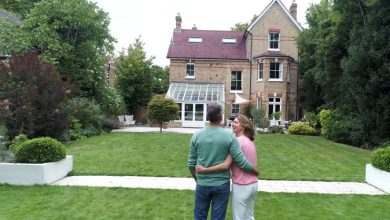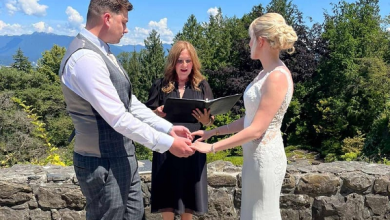7 Mistakes to Avoid When Applying for a UK Marriage Visa – Live in UK
Applying for a UK Marriage Visa can be a pivotal step in building a future with your spouse in the United Kingdom. However, the application process is notoriously detailed, and even minor errors can lead to delays, additional costs, or outright rejection.
To help you navigate this challenging process, here are seven common mistakes to avoid when applying for a UK Marriage Visa.
1. Submitting Incomplete or Inaccurate Documentation
One of the most common reasons for visa rejection is the failure to provide all the required documents or submitting documents with inaccuracies. The UK Home Office is meticulous in reviewing applications, and missing even a single document can result in delays or denial.
How to Avoid It: Create a checklist of all necessary documents, such as your marriage certificate, proof of relationship (photos, correspondence, etc.), financial evidence, and accommodation details. Double-check each document for accuracy and ensure they meet the Home Office’s specific requirements. Consider seeking advice if you are unsure about what is required for any particular document.
Additionally, ensure your documents are translated into English if they are in another language. Certified translations are mandatory and failing to include them can cause unnecessary complications.
2. Failing to Meet Financial Requirements
The UK government requires you to meet specific financial thresholds to prove you can support yourself and your spouse without relying on public funds. As of now, the minimum income requirement is £18,600 per year, which increases if children are included in the application.
How to Avoid It: Ensure you have sufficient income or savings to meet the financial threshold. You can use a combination of income sources, such as employment, self-employment, or savings, but you must provide clear evidence, such as payslips, tax returns, or bank statements. It is also important to note that the financial requirements may change depending on your circumstances, so staying updated on current guidelines is crucial.
If you’re using savings to meet the financial requirements, remember that the funds must have been in your account for at least six months prior to the application. Many applicants overlook this detail, resulting in delays.
3. Overlooking the English Language Requirement
Applicants must demonstrate their proficiency in English by taking an approved test or providing proof of relevant qualifications. Ignoring this requirement is a surefire way to face delays or rejection.
How to Avoid It: Take the English language test early in the application process to avoid last-minute stress. Ensure the test is from an approved provider and that your results are still valid at the time of submission. Alternatively, provide evidence of prior qualifications that meet the language requirement. For instance, a degree taught or researched in English may exempt you from taking a test if it is recognized by UK NARIC (now known as Ecctis).
If you are exempt due to certain conditions, such as age or medical reasons, ensure you provide the necessary evidence to support your claim. Clarity and thoroughness are key.
READ – Steps To Apply and Get a UK Marriage Visa
4. Insufficient Proof of Genuine Relationship
The UK Home Office is vigilant about detecting sham marriages. Insufficient evidence of a genuine relationship can lead to rejection, even if your marriage is legitimate.
How to Avoid It: Compile substantial evidence of your relationship, including:
- Photographs of you and your spouse over time
- Records of communication (emails, chats, calls)
- Joint travel itineraries or hotel bookings
- Statements from family and friends confirming your relationship Organize this evidence in a clear and logical way to make it easy for the caseworker to review.
It’s also helpful to include a personal statement that outlines your relationship journey—how you met, key milestones, and your future plans together. This narrative provides context and strengthens your case.
5. Rushing the Application Process
Applying for a UK Marriage Visa is not a task to be rushed. Errors, omissions, or misinterpretations often arise when applicants try to expedite the process without thorough preparation.
How to Avoid It: Begin the application process well ahead of your planned travel date. Allow time to gather documents, complete forms, and address any issues that may arise. Patience and diligence will save you time and frustration in the long run.
If you are facing time constraints, consider premium processing options where available. However, ensure that even expedited applications are thoroughly prepared, as the same scrutiny applies.
6. Using Incorrect or Outdated Application Forms
The UK visa application process is subject to frequent updates. Using an outdated form or completing the wrong type of application can result in delays or denial.
How to Avoid It: Always download the most recent application forms from the official UK government website. Pay close attention to the specific visa category and its requirements to ensure you’re completing the correct form. If you’re applying online, ensure that you follow the prompts correctly to avoid selecting the wrong visa type.
It’s also essential to check whether supplementary forms or evidence are required for your specific situation. Missing these can be just as damaging as using an outdated form.
7. Neglecting Professional Advice When Needed
Many applicants underestimate the complexity of the UK Marriage Visa process. While it is possible to complete the application independently, mistakes often arise due to a lack of understanding of the legal and procedural nuances.
How to Avoid It: If you’re unsure about any aspect of your application, seek professional guidance from an immigration advisor or solicitor accredited by the Office of the Immigration Services Commissioner (OISC). While it may involve additional costs, professional advice can significantly increase your chances of a successful application.
Immigration professionals can help you identify potential weaknesses in your application and provide tailored advice to address them. Their expertise can be invaluable, especially in complex cases involving previous refusals, criminal records, or unusual circumstances.
Final Thoughts
Applying for a UK Marriage Visa can be a demanding process, but careful planning and attention to detail can help you avoid costly mistakes. By understanding and addressing these seven common pitfalls, you’ll be better prepared to submit a strong and comprehensive application.
Remember, the stakes are high, and the process can feel overwhelming. However, with the right approach, your dream of living with your spouse in the UK can become a reality. Take your time, seek help when needed, and ensure every aspect of your application reflects your genuine intent and preparation.



